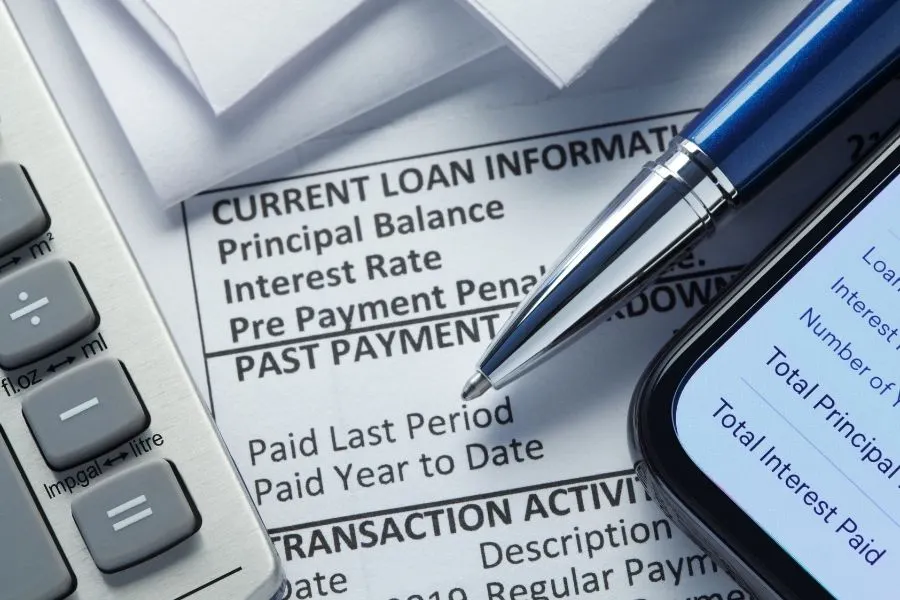What Kind Of Agent Fees Does Better Homes And Garden Charge
Online loans evolved from traditional financing options, paving the way for the turn of the decade's fast and convenient money-lending landscape. While they're meant to be much simpler and less of a headache to apply for, there are still a couple of things you need to consider when deciding to go for an online loan. You'll have to face the inevitable wall of extra charges, from interest rates to processing fees–here's everything you need to know about them.

Defining Online Loans
When you think about online loans, the first things that come to mind are likely short-term and quick loans. These are highly accessible moneylending options that even non-bank clients can avail of, and usually don't require more than a valid government ID. However, the scope of online loans extends to a much farther reach. Apart from these small-value lending programs, you also have options for significantly higher-value loans, such as business, education, and personal loans, all available from the comfort of your home.
Essentially, online loans can be classified as loans that you can apply for through the company's website or smartphone application. The entire process is often completed online, making it a convenient choice for these homebound times or clients who live far away from the main branch office. With so many options on the market, you'll find that the online loan fees and charges are never the same. For instance, smaller-value loans may only require you to pay an interest rate and processing or administrative fee, while substantial loans may require notary fees, taxes, and more.
READ: 10 Things you Need To Know About Short-Term Lending
Fees And Charges
The fees and charges that moneylenders impose are never the same. Varying loan types, programs, and companies will charge differently, so it's best to check out your preferred financial institution's website or get in touch with their financial advisors to ensure that you're aware of all the charges with availing an online loan.
READ: Why You Should Borrow From Licensed Online Sellers
-
Processing Fee
A processing fee is something that you can classify as an administrative fee. It's essentially a sum that you have to pay to the moneylender to process your loan application. It covers any extra costs on their end to complete your application, such as credit checks and other administrative functions.

The cost varies but often ranges from P250 to P2,500, depending on the moneylender and type of loan. Even quick loans with 15-minute turnovers will most likely charge a processing fee of around P250, so keep that in mind when computing your loan's final cost. An important thing to note is that the processing fee is usually deducted from the actual loan value, so it's best to know how much it costs exactly, and then add it to the total value you borrow.
-
Monthly Interest Rate
If there's an extra cost that you'll have to be extremely particular about, it's the monthly interest rate. If you aren't familiar with how it works, it's essentially the interest rate that moneylenders apply over the total value you borrow, outstanding fees, and late payments. It compounds monthly and will be attached to your monthly statement–you have no choice but to pay for it until the complete loan balance is covered.
It's pertinent to be picky about the interest rate because it can have an impact on how much the loan affects your day-to-day finances. Naturally, a larger interest rate can make a loan more difficult to pay for, resulting in an unwanted debt pile-up. You can easily search for the most optimal moneylender that offers your preferred interest rate with GoBear's loan comparison tool or browse through lending options if you don't have anything specific in mind.

-
Documentary Stamp Tax (DST)
A documentary stamp tax isn't the most common fee imposed by online loans because it's only required for business loans of any value and personal loans over P250,000. People usually turn to online loans for smaller-value lending needs–often no more than P50,000. However, the lending landscape is quickly changing, and it's no longer uncommon to find heavy equipment, business, medical, and educational loans with a fully-online application and processing system. If you opt for one of these larger loans, then you'll likely encounter the DST fee.
The Bureau of Internal Revenue mandates the DST, so it's not something that you can avoid by switching moneylenders. It requires you to pay P1.50 for every P200 you loan. The tax applies to all business-related loans of any value and personal loans amounting to over P250,000. For instance, if you've applied for a P10,000 business loan, you can divide it by 200 and multiply the quotient by 1.5. That should result in P75, which is the total DST for this particular loan value.
Similarly to the processing fee, the DST is deducted from the loan value, so it's best to include it in your computation to ensure that you still get the exact amount you need after all the fees and deductions.

-
Early Payment Fee
If you've been looking up how loans work for a while now, then you know that moneylenders don't hesitate to charge extra to clients who forget to pay on time. However, some financial institutions also impose a fee on those who pay earlier than the agreed-upon period.
Paying off your debt before the term ends is a wonderful achievement, but a few moneylenders charge an early payment fee to cover a portion of the interest for the remaining months in your loan's term. Some banks dub this fee as the pre-termination fee, but the purpose is essentially the same. If you historically pay off your debt early and aren't keen on paying this extra charge, then consider choosing a moneylender that doesn't impose any early payment fees.
READ: How Quick Loans Can Help Fix Your Finances
-
Late Payment Fee
You want to avoid missing a payment due date as much as possible because it can turn into a huge financial setback. Moneylenders are known for sending late payment notices to delinquent borrowers–that means having to pay an extra 3%-8% of your outstanding balance or as much as P500, depending on where you choose to loan. This fee can be detrimental to your overall finances, regardless of how much you borrowed. There isn't any way to bypass this fee apart from paying your monthly dues on time. Consider sending yourself a calendar notification or have a family member remind you if you're notorious for forgetting!

Final Words
Online loans are wonderful because they bridge the convenience and practicality of an all-digital lending system. While you might not avoid all the fees above, it pays off to know what you're paying for and how much you need to add to your loan value to cover any extra costs. Learn more about loans here.
Nicole Si is a writer for Finder.
What Kind Of Agent Fees Does Better Homes And Garden Charge
Source: https://www.finder.com/ph/online-loans-fees-and-charges-you-need-to-know-about
Posted by: haassobsell.blogspot.com

0 Response to "What Kind Of Agent Fees Does Better Homes And Garden Charge"
Post a Comment